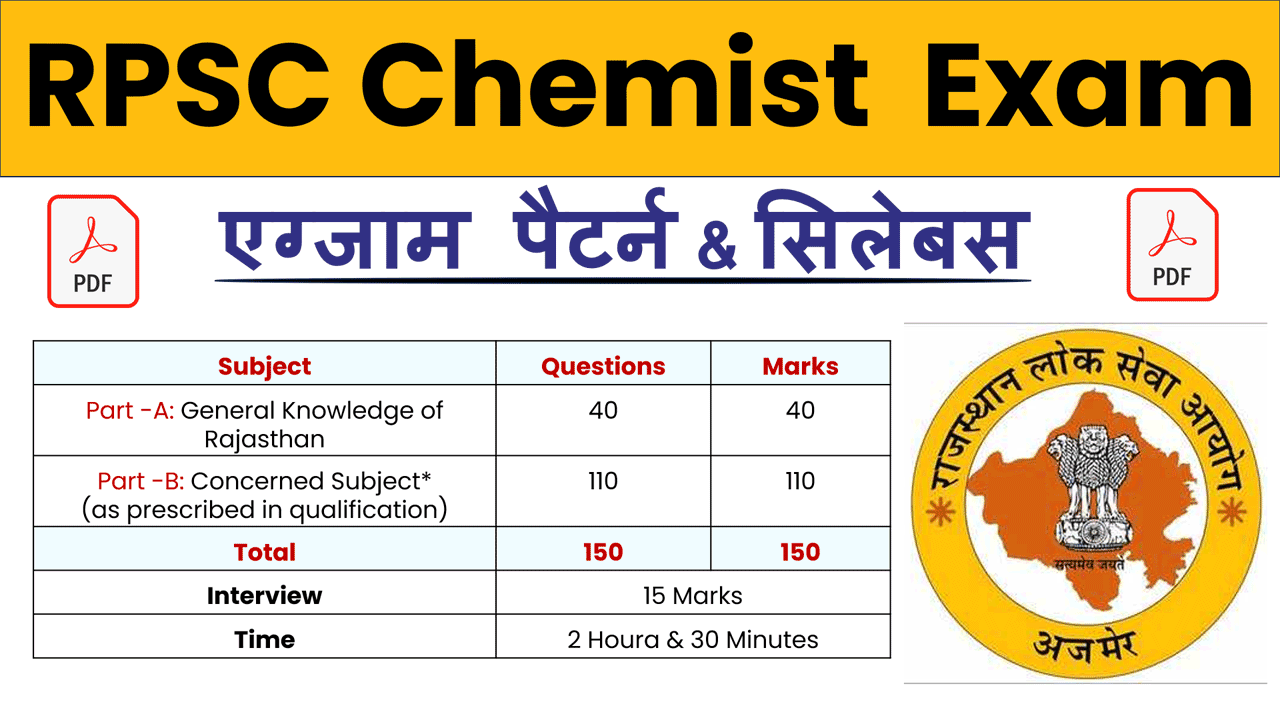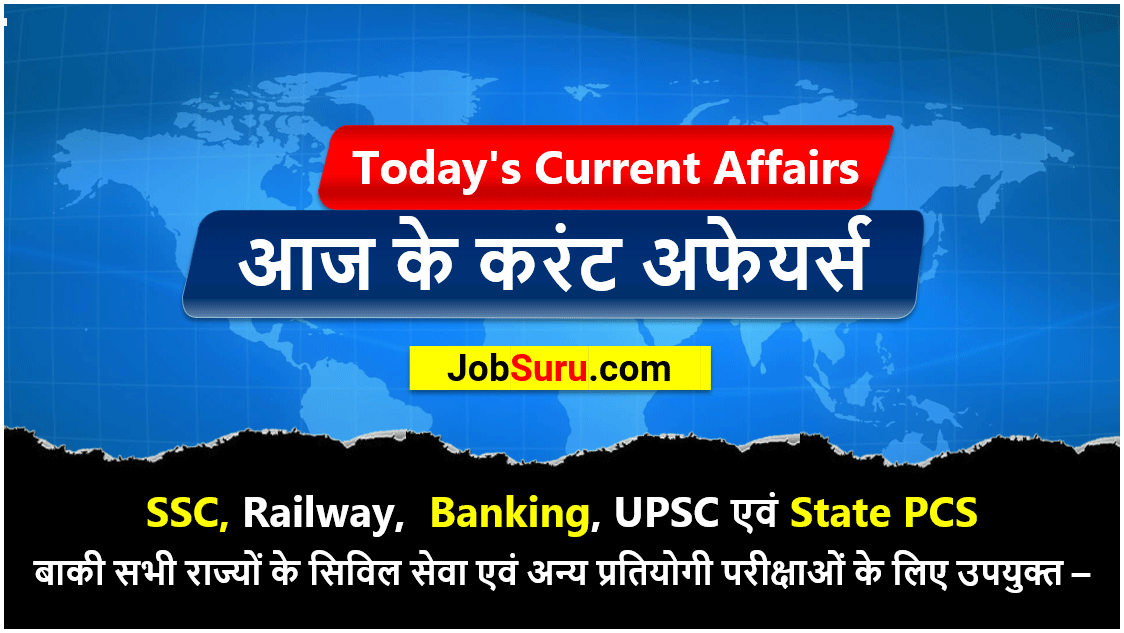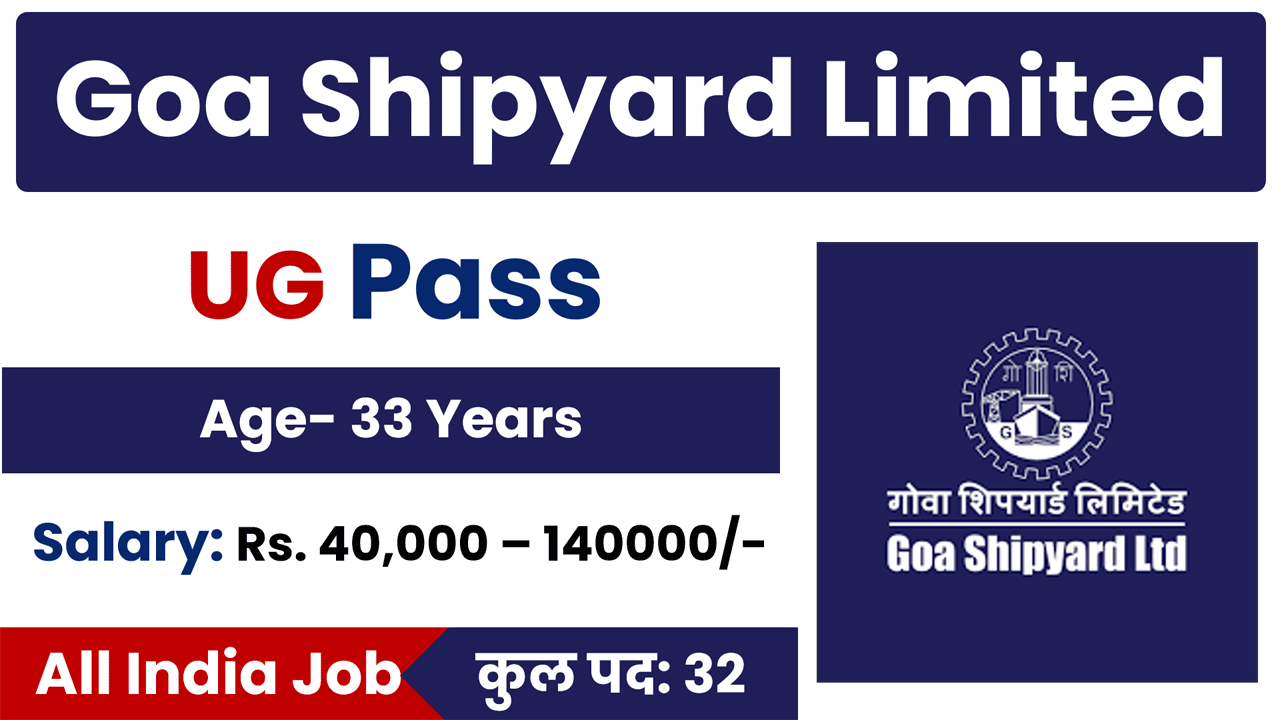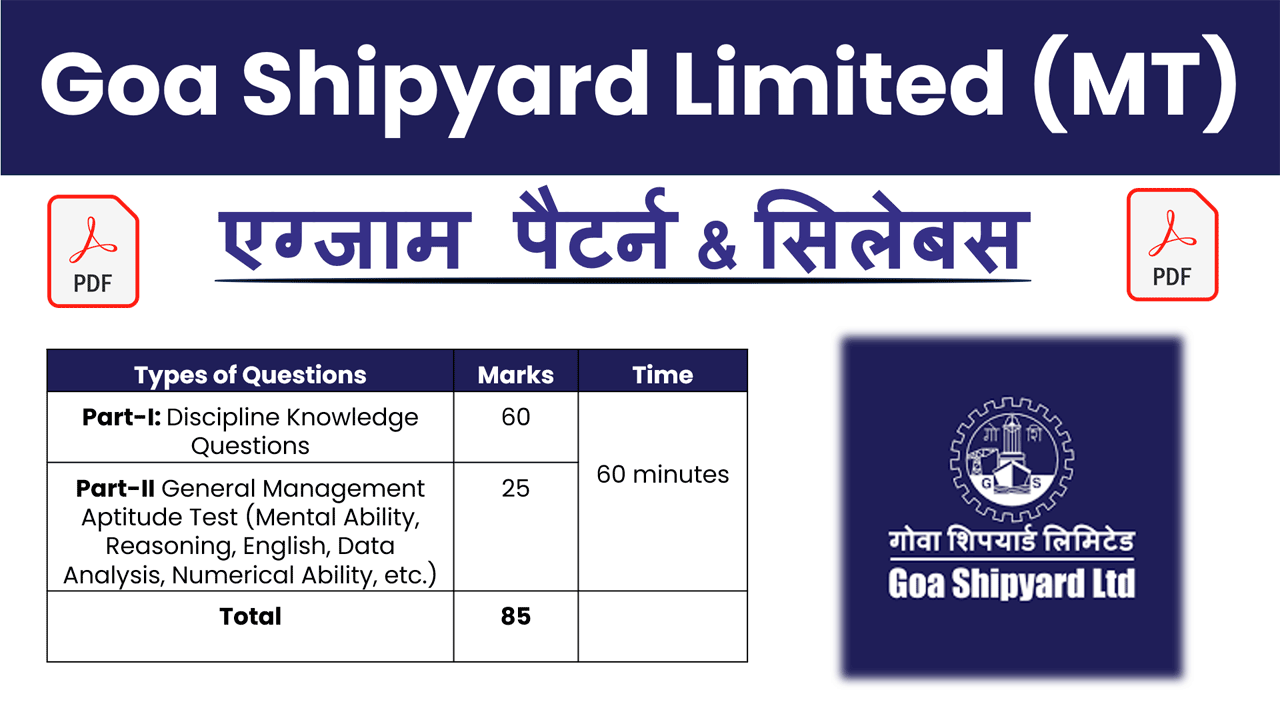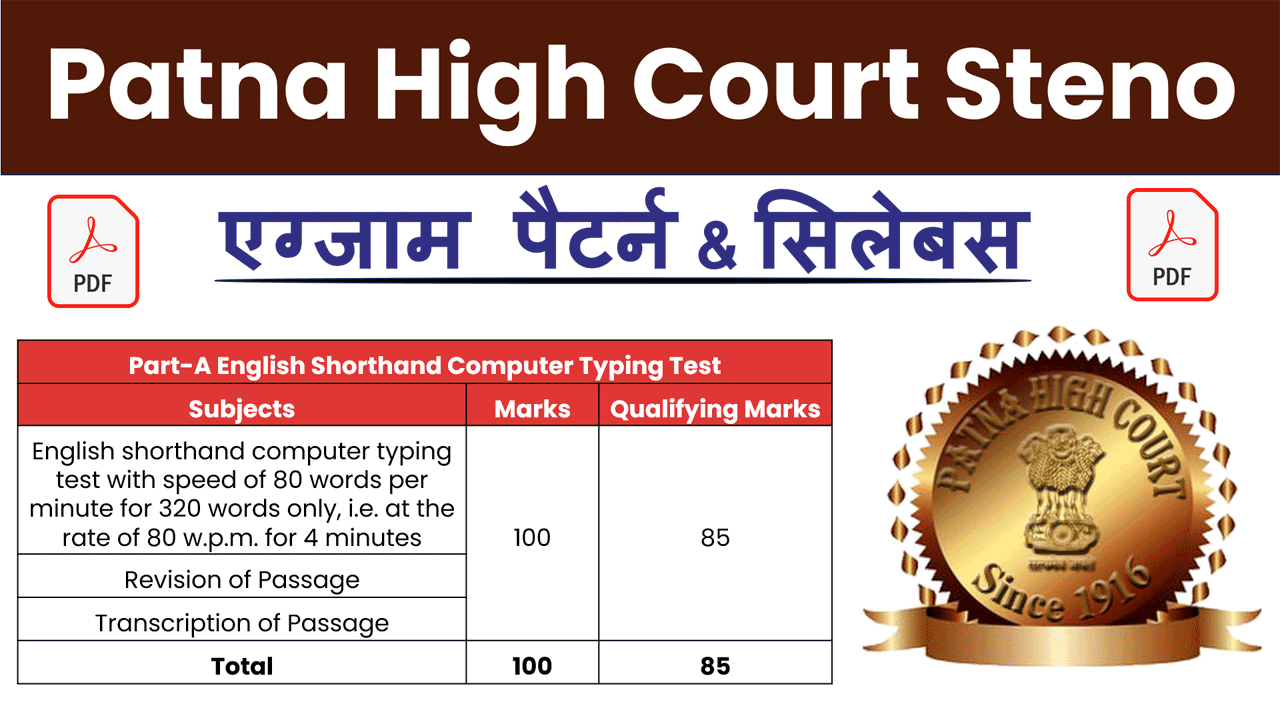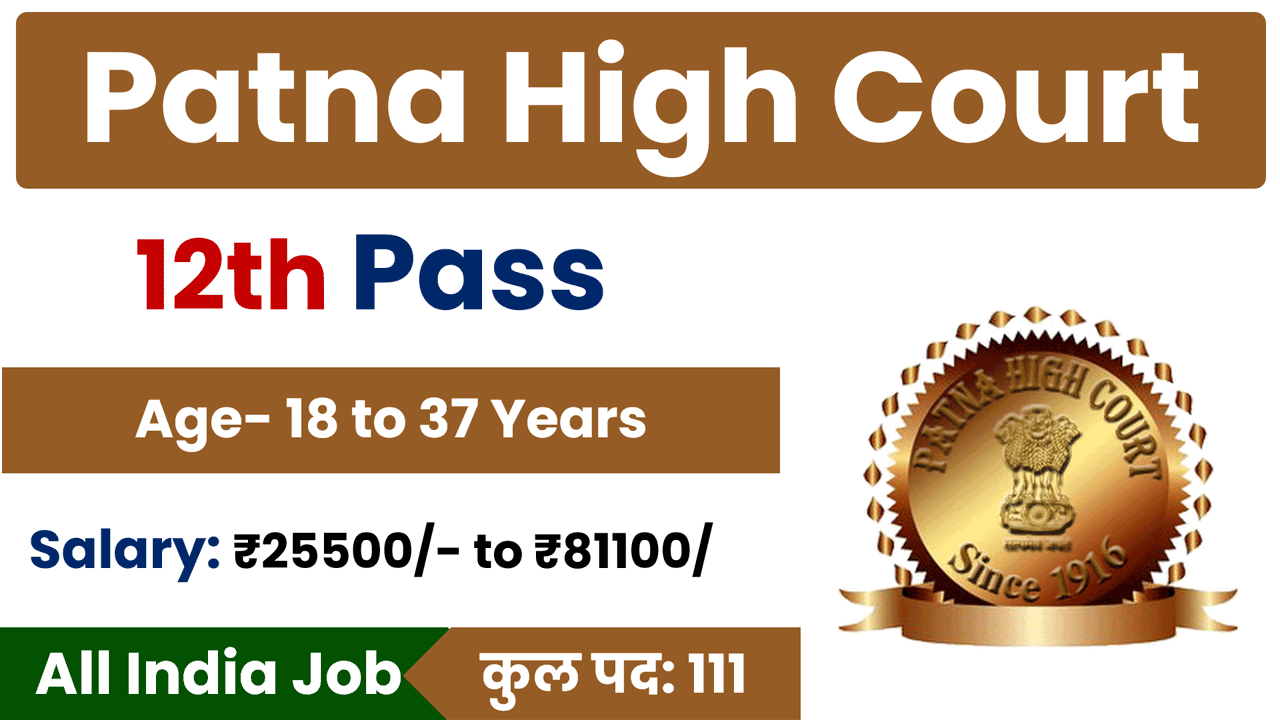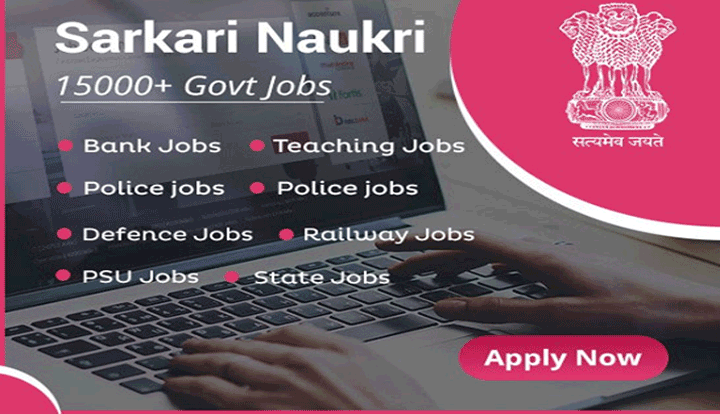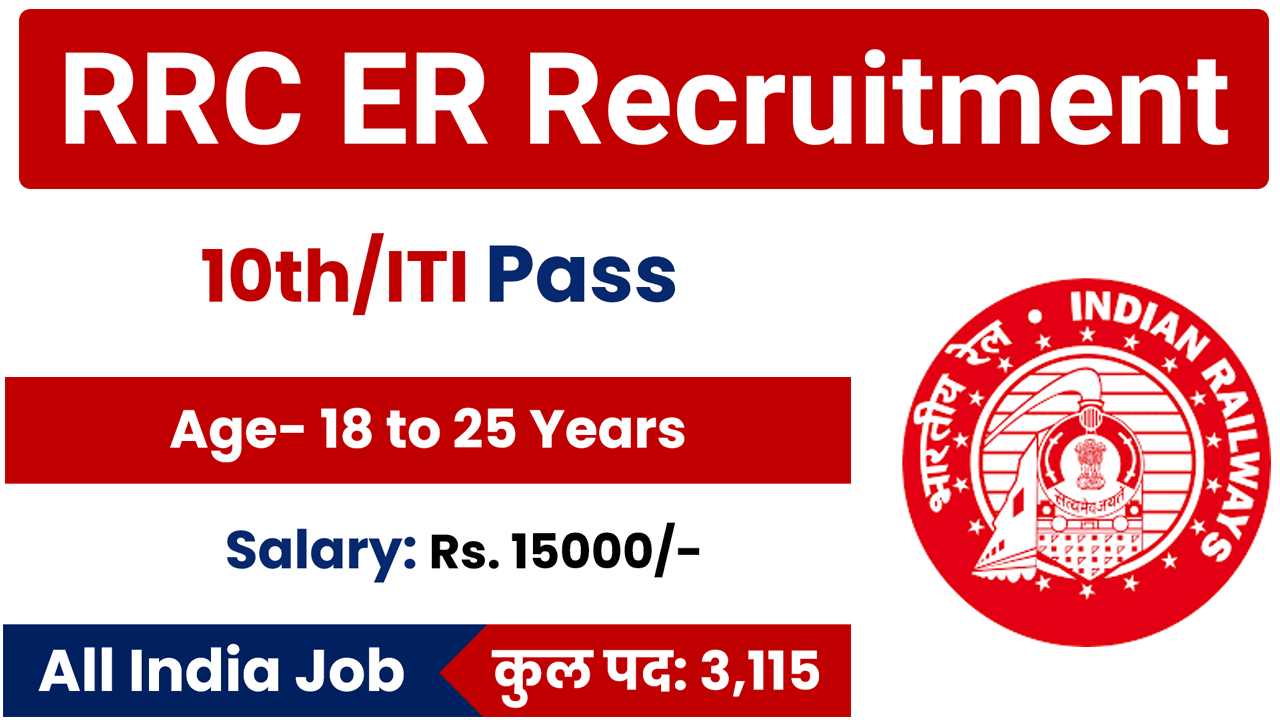RPSC Chemist Syllabus 2025: RPSC Chemist Syllabus 2025 is essential for candidates preparing for the RPSC Chemist Recruitment. To succeed in the exam, understanding the syllabus thoroughly is crucial.
To enhance your preparation, solve RPSC Chemist Previous Year Question Papers, which will help you understand the exam pattern and important topics. Practicing previous papers, especially in the last 15 days before the exam, can be highly beneficial.
Candidates who wish to RPSC Chemist Syllabus 2025 PDF Download can do so using the link below. 📌 Download the RPSC Chemist Syllabus PDF. For further queries, feel free to ask via Facebook Messenger or the comment box. Prepare smartly with the right syllabus and strategy to achieve success! 🚀
RPSC Chemist Selection Process 2025
- Selection will be based on written examination and Interview.
RPSC Chemist Exam Pattern 2025
| Subject | Questions | Marks |
| Part -A: General Knowledge of Rajasthan | 40 | 40 |
| Part -B: Concerned Subject* (as prescribed in qualification) | 110 | 110 |
| Total | 150 | 150 |
| Interview | 15 Marks | |
| Time | 2 Houra & 30 Minutes | |
Note: – The detailed Syllabus will be intimated to the candidate within the stipulated time in the manner as the Commission deems fit.
- The competitive examination shall carry 150 marks and 150 questions of Multiple Choice Type questions.
- There shall be one paper. Duration of Paper will be Two hours and Thirty Minutes.
- Negative marking shall be applicable in the evaluation of answers. For every wrong answer one-third of the marks prescribed for that particular question shall be deducted.
RPSC Chemist Syllabus 2025
RPSC Chemist Syllabus 2025: Geography, History, culture, and polity of Rajasthan
- राजस्थान के इतिहास की महत्वपूर्ण ऐतिहासिक घटनाएँ,
- राजस्थान की प्रशासनिक व्यवस्था राज्यपाल, राज्य विधान सभा, उच्च न्यायालय, राजस्थान लोक सेवा आयोग, जिला प्रशासन, राज्य मानवाधिकार आयोग, राज्य निर्वाचन आयोग, लोकायुक्त, राज्य सूचना आयोग, लोक नीति
- सामाजिक-सांस्कृतिक मुद्दा।
- स्वतन्त्रता आन्दोलन, जन-जागरण एवं राजनीतिक एकीकरण।
- लोक कलाऐं, चित्रकलाऐं और हस्तशिल्प एवं स्थापत्य।
- मेले, त्यौहार, लोकसंगीत एवं लोकनृत्य।
- राजस्थानी संस्कृति एवं विरासत, साहित्य।
- राजस्थान के धार्मिक आख्यान, संत एवं लोकदेवता।
- महत्वपूर्ण पर्यटन स्थल ।
- राजस्थान के प्रमुख व्यक्तित्व ।
RPSC Chemist Syllabus 2025: Concerned Subject
- Chemical Bonding – Valence Bond Theory and its limitations; various types of hybridization; Bent Rule and energies of hybridization, and shapes of simple inorganic molecules and ions; VSEPR theory of NH3, H3O+ , SF4, H2O, SnCl2, ClF3, XeO4, ICl2 – ; Molecular Orbital Theory of homonuclear and heteronuclear diatomic molecules; Multicentered bonding in electron deficient compounds; Hydrogen Bonding and van der Waals forces
- Werner’s Theory; Valence Bond Theory and Crystal Field Theory to explain bonding in transition metal complexes, magnetism, geometry, spectral behaviour and colour of coordination complexes; Limitations of CFT, Molecular Orbital Theory (tetrahedral, octahedral and square planar complexes and -bonding complexes); Charge transfer spectra; Spin free and spin paired complexes; Stereochemistry of different coordination numbers.
- Special characteristics & Types of inorganic polymers; Application of silicones, silicates, zeolites, ceramics and ceramic glasses. Diborane and higher boranes, borazines, carboranes, fluorocarbons; Metal clusters: metalloboranes and metallocarboranes. Nanomaterials: Introduction, preparations and characteristic properties; Quantum dots (QDs), Carbon Nanotubes (CNTs), Graphene, Fullerenes.
- Definition, classification, preparations, properties, structure and applications of organometallic compounds of Lithium, Magnesium, Mercury, Iron, Rhodium and Tin; Preparation, properties and nature of bond in Metal Carbonyls and Nitrosyls.
- Arrhenius, Bronsted-Lowary and Lewis Concepts of acids and bases, Theory of Hard and Soft Acids and Bases and its applications. Physical properties of solvent, types of solvents and their general characteristic; Reactions in non-aqueous solvents with reference to liquid NH3, HF and liquid SO2
- Radiochemical analysis: Introduction of nuclides, isotopes, isobars, isotone, natural and artificial radioactivity, half-life, average life, artificial transmutation, nuclear reactions, nuclear fission and fusion. Applications of radioisotopes; Neutron Activation Analysis (NAA), Radio Immune Assay (RIA).
- Electrochemical cell and Ion Selective Electrodes; Voltammetric cell and Cyclic Voltammetry; Chemical sensors and biosensors; Modern theories of corrosion, Thermodynamics and stability of metals; Types of corrosion and prevention; Green Inhibitors.
- Chemical Statistics: Mean, Median, Accuracy, Precision, Standard Deviation, Relative Standard Deviation; Errors, Types of Errors: Determinate and Indeterminate; Statistical evaluation of data: Calibration Curve, Standard Addition Method, Correlation Coefficient, Linear Regression Analysis (LRA), Analysis of Variance (ANOVA).
- Principle and process of solvent extraction, Distribution Law, Partition Coefficient, Batch Extraction, Continuous Extraction and Counter Current Extraction. Applications of solvent extraction for determination of ion using organic reagents: Oxine for Iron, Acetylacetone for Beryllium, Diethyldithiocarbamate for Copper, Dithizone for Lead.
- Principle, Instrumentation and Applications of- (i) Thin layer chromatography (TLC); (ii) Paper chromatography; (iii) Ion Exchange Chromatography; (iv) Gas Chromatography (GC) and GC-MS; (v) High Performance Liquid Chromatography (HPLC); (vi) Ion Chromatography (IC).
- Water pollutants: classification, their effects and control; Sampling of water; Sources of water pollution, water quality parameters hardness, alkalinity, turbidity, DO, BOD, COD, TDS, metals, content of chloride, sulphate, nitrate, silicates and Microorganisms; water quality standards and their analysis; Nanotechnology for water purification. Heavy metal pollution; Instrumental technique of analysis of heavy metals in aqueous systems, pesticides as water pollutants; Purification and treatment of water; Water pollution laws and standards.
- Sources, detrimental effects and control of soil and air pollutions; Fertility management of soils; Soil sediment analysis- physical and chemical analysis of soil pollution. Green House effect, acid rain, ozone hole phenomenon and thermal inversion.
- Analysis of major and minor components of food, common adulterants in food, microscopic examination of foods for adulteration, pesticides analysis in food products. Analysis of Water for Pesticides, Volatile Organic Compounds (VOCs) and Endocrine Disrupters (ECDs).
- Basic principles, Instrumentation and applications in identification of compounds by: UV-visible spectroscopy; IR spectroscopy; NMR spectroscopy; Mass spectroscopy; Differential Scanning Calorimetry (DSC); Particle Size Analysis by Dynamic Light Scattering (DLS).
- Principle, instrumentation and applications of: (i) Atomic Absorption Spectroscopy (AAS); (ii) X-ray Diffraction Technique; (iii) Thermal Techniques: Thermogravimetric Analysis (TGA); and Differential thermal Analysis (DTA).
- Basic knowledge of computer systems (CPU and other peripheral devices – input/output/auxiliary storage devices); software, opening system and programming language e.g. Machine language, assembly language and higher-level languages. Data processing, principles and programming, flow-charts.
- ntroduction of photochemical reactions, types of excitations; fate of excited molecules, quantum yield, transfer of excitation energy. Green and sustainable chemistry: Principles of green chemistry with their explanations and examples; Green technology and applications to reduce environmental pollution.
RPSC Chemist Recruitment 2025 Apply Link
| Events | Links |
| Notification | Download |
| Maths Notes🏆 | Download📝 |
| GK/GS Notes🏆 | 💥Download |
| Daily Latest Jobs💥 | ⚠️Click Here |
| Join Our WhatsApp Group | Join Here |
| Join Our Telegram Group | Join Here |
| Age Calculator | 📱Check Age Limit |
| Other Govt Jobs Related Articles | |
| 10th Pass | 12th Pass |
| ITI | Diploma |
| Graduation | Post Graduation |
| Medical Jobs | Nursing |
| B.Tech | MBA |
| SSC | UPSC |
| Banking Jobs |
Railway Jobs |
| Defense Jobs | Fireman Jobs |

